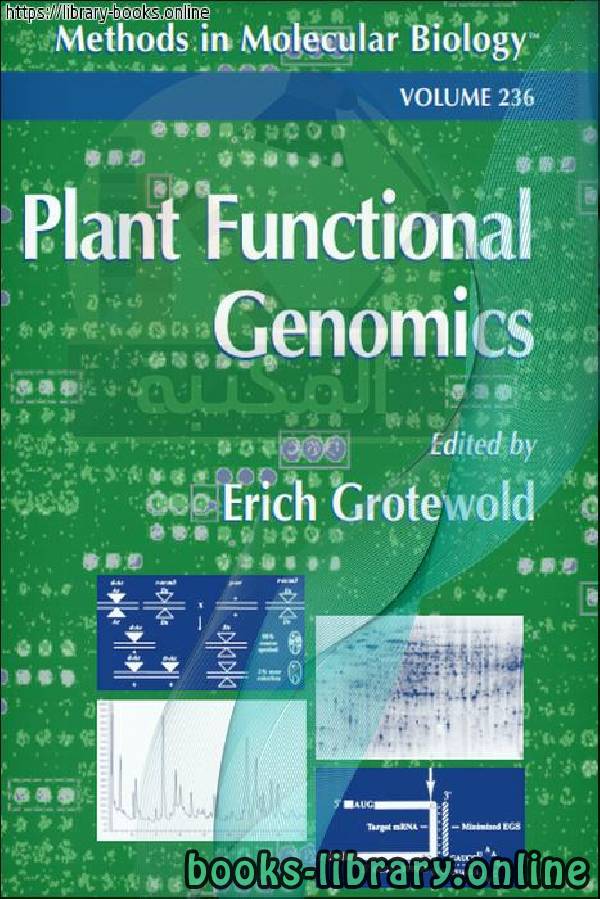❞Erich Grotewold❝ المؤلِّف - المكتبة
- ❞Erich Grotewold❝ المؤلِّف - المكتبة
█ حصرياً جميع الاقتباسات من أعمال المؤلِّف ❞ Erich Grotewold ❝ أقوال فقرات هامة مراجعات 2025 ❰ له مجموعة الإنجازات والمؤلفات أبرزها Plant Functional Genomics Methods and Protocols ❱
إنضم الآن وتصفح بدون إعلانات
له مجموعة من الإنجازات والمؤلفات أبرزها ❞ Plant Functional Genomics. Methods and Protocols ❝
#11K
0 مشاهدة هذا اليوم#23K
0 مشاهدة هذا الشهر#26K
2K إجمالي المشاهدات نبذه عن الكتاب: An Improved Method for Plant BAC Library Construction Meizhong Luo and Rod A. Wing Summary Large genomic DNA insert-containing libraries are required as critical tools for physical mapping, positional cloning, and genome sequencing of complex genomes. The bacterial artificial chromosome (BAC) cloning system has become a dominant system over others to clone large genomic DNA inserts. As the costs of positional cloning, physical mapping, and genome sequencing continuously decrease, there is an increasing demand for high-quality deepcoverage large insert BAC libraries. In our laboratory, we have constructed many high-quality deep-coverage large insert BAC libraries including arabidopsis, manocot and dicot crop plants, and plant pathogens. Here, we present the protocol used in our laboratory to construct BAC libraries. Key Words BAC, library, method, pCUGIBAC1, plant 1. Introduction Large genomic DNA insert-containing libraries are essential for physical mapping, positional cloning, and genome sequencing of complex genomes. There are two principal large insert cloning systems that are constructed as yeast or bacterial artificial chromosomes (YACs and BACs, respectively). The YAC cloning (1) was first developed in 1987 and uses Saccharomyces cerevisiae as the host and maintains large inserts (up to 1 Mb) as linear molecules with a pair of yeast telomeres and a centromere. Although used extensively in the late 1980s and early 1990s, this system has several disadvantages (2,3). The recombinant DNA in yeast can be unstable. DNA manipulation is difficult and inefficient. Most importantly, a high level of chimerism, the clon-
عدد المشاهدات
3601
عدد الصفحات
433
نماذج من أعمال Erich Grotewold:


